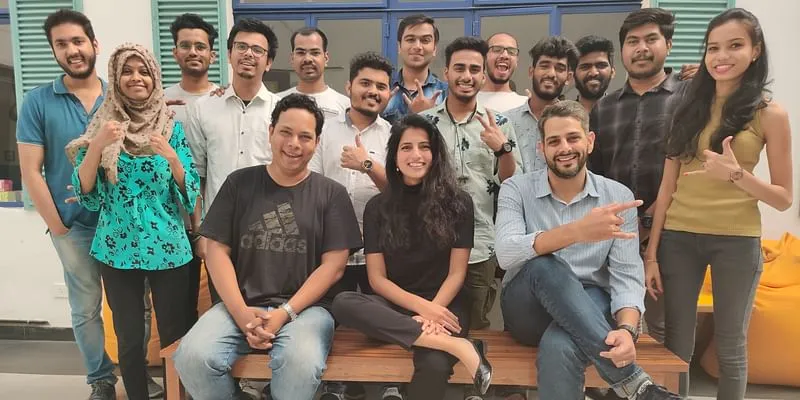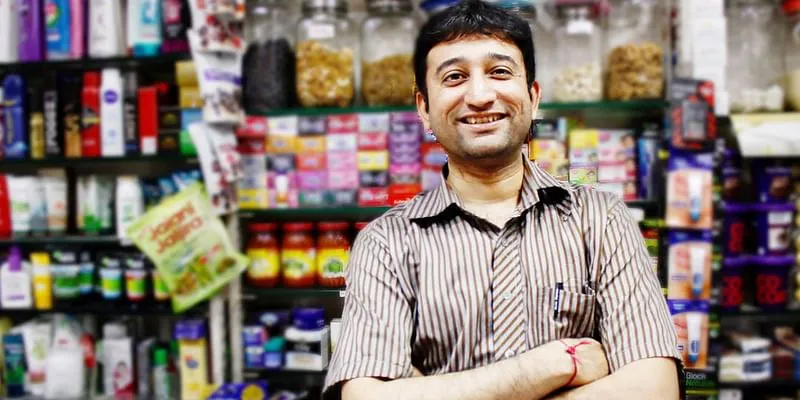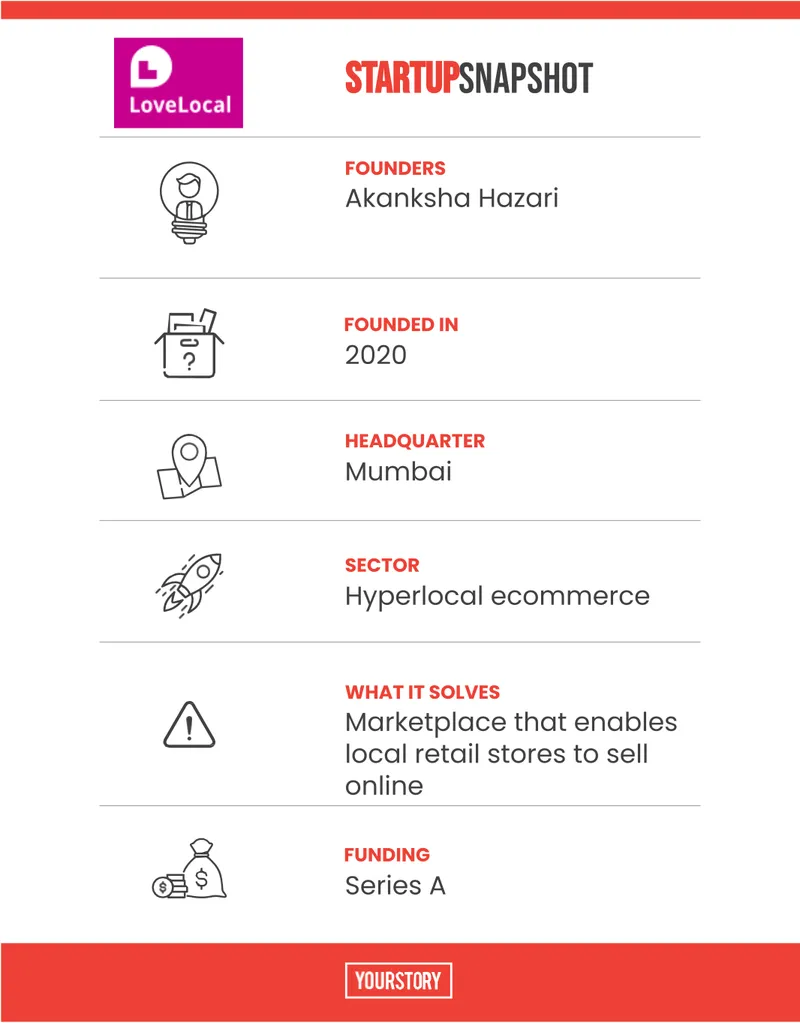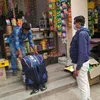Solving for kiranas, Mumbai-based startup LoveLocal finds sweet spot in battle for online grocery
The pandemic was a litmus test for Mumbai-based startup LoveLocal to prove its core mission of helping small businesses in their digital transformation.
The growth of , a Mumbai-based hyperlocal ecommerce marketplace that enables local retailers to sell daily essentials online, in the past 18 months shows the power of being at the right place at the right time.
The tech startup that pivoted from its earlier avatar of M.paani, a mass-market loyalty programme platform, today caters to more than 51,000 retailers, most of which are local kirana shops from grocery to medicine to daily item needs, and over 2.5 lakh customers across 35 cities in over 1,000 pin codes.
In many ways, the pandemic was a litmus test for LoveLocal to prove its core mission of helping small businesses in their digital transformation, which has been a long time coming, and even the playing field for local stores so that they are equipped to compete with bigger stores and grow in the long run.

The LoveLocal team with Akanksha (centre).
Founder and CEO Akanksha Hazari launched LoveLocal in January of 2020 just before the first lockdown after a year of on-ground research focusing on solving the challenges of digitisation for local stores. Akanksha says the startup has grown 20 times in the last 15 months and most of it has been organic.
In the first lockdown phase, there was a 60 percent increase in search for ‘home delivery’ and ‘how to pay online’ even as organised retail and large ecommerce platforms were unable to meet the surge in demands.
It also helped that for the first time, rural internet users in India surpassed urban internet users by 10 percent in 2020, at 227 million. “This indicated a positive shift towards online. Retailers, too, adapted to the shift in consumer buying behaviour,” she adds.
In the second wave of lockdowns this year, the startup saw an increase in its customer base by over 45,000, and enabled over 7,500 local retailers in Mumbai alone. During this time, LoveLocal also helped retailers by issuing ecommerce certificates, enabling them to continue home delivery for online orders without hindrance.
“Our customers were also better prepared for the second wave as the average order value on the platform increased from Rs 400 to Rs 700. The revenue of our popular local retailers reached Rs 8 lakh per month on our platform,” Akanksha says.
Solving for kiranas
LoveLocal offers a complete shop digitisation solution for retailers that is free with no onboarding fees, margins, or commission. The platform includes a consumer app, customer service support, frictionless storefront creation, cataloguing, digital payments, and logistics.
The startup does not have any dark stores and Akansha says they do not intend to open any. “We take care of end-to-end consumer experience for our retail partners, as well as their marketing and promotions.”
The shops prefer to do the delivery themselves because it allows them to offer free delivery options. However, if they want to use a third-party delivery partner, LoveLocal enables that as well.
From the consumer perspective, there are tonnes of friction when the local store takes orders over only the phone or WhatsApp because there is no product catalogue, no integration with digital payments, no way to track orders, and no way of looking at one’s transaction history.
It is not a smooth process. Similarly, from the shop owner’s side, things are chaotic and their attention is focused more on the customers in the store.

A LoveLocal retailer in Mumbai.
By bringing these local stores online, LoveLocal makes them discoverable to a wider customer base and allows them to service both their in-store walk-in customer and the online customer at the same time.
“We believe in an integrated online and offline experience as we also have a shop pickup option,” says Akansha.
From the shopkeeper’s perspective, all they have to do is download the app, submit their KYC, and fill out their business profiles.
The second and most important aspect LoveLocal is solving for is cataloguing, which is critical to the success of any retailer.
“We have used data science and machine learning where our algorithms are based on the data that the retailers submit when they are setting up their store. We are able to predict the products that the shops will sell. This actually enables us to make a shop live online within 15 minutes with thousands of products depending on the category of the store. Even if the shop owner does not sit there and update the catalogue,” she says.
Once the shop uploads its business profile, it receives what the startup calls the smart catalogue. At the click of a button, they can launch their store online with that catalogue. The multiple cataloguing engines that are working on an ongoing basis keep the shop’s products, prices, and offers, and deals up to date.
“We have worked to make our product really seamless so that the shop owners do not have to learn a lot to figure out how to operate a store online,” says Akansha.

Micro SaaS business model
The startup has raised $8 million in a Series A funding round from Blume Ventures, Chirate Ventures, AC Ventures, Henkel, Candy Ventures, in addition to angel investors, including Kevin Aluwi, CEO and Co-founder of Gojek, and Suvir Varma, Board Member and Senior Advisor at Bain & Company, Private Equity.
LoveLocal follows a micro SaaS structure. It has a freemium model for shops, and the SaaS plans give them additional features.
“During the second wave, we did not feel right to monetise through shops, so right now we are focused on supporting and scaling them. This is one of the things we have done as a service to local shops,” adds Akanksha, explaining that the startup is not focused on revenues at the moment.
More the merrier
Think online grocery and essential items, and you think of Bigbasket, Grofers, and countless other marketplaces launched by heavily-funded startups for a share in the $18.2-billion Indian online grocery market pie.
But as Akanksha says they are not in competition with these marketplaces as they do not intend to have dark stores or white-label local stores.
“Ours is a platform for local stores to be discovered online as we believe Indians will always continue to shop from local stores,” she states.
There are a few other startups who are solving for digitisation of local stores solving specific problems like stock management, or khatas and ledgers.
Which is just as well, because when you have such a large market in India with more than 60 million retail stores, of which 13 to 15 million are only in the daily needs category, the more the tech solvers the better it is.
Edited by Saheli Sen Gupta










